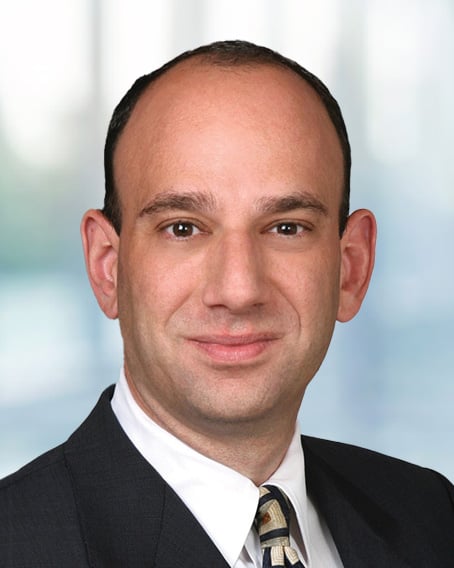In the written decision in Sisvel International S.A. v. Haier Deutschland GmbH, Germany’s highest court—the Cartel Senate of the German Federal Court of Justice (“FCJ”)—held that, during pre-suit negotiations, before a patent expires, implementers of standard-essential patents (“SEPs”) must clearly and unequivocally declare their willingness to conclude a license agreement on fair, reasonable, and non-discriminatory (“FRAND”) terms. If they do not, the FCJ held, those implementers may not be able to hold an SEP holder liable in Europe for anticompetitive behavior. The Court also provided guidance on the obligations of an SEP holder to avoid abuse of dominance charges, including in the context of making a demand for a worldwide SEP portfolio license. Ultimately, this decision provides important guidance to both patentees and putative infringers about the steps necessary to avoid abuse of dominance allegations and invoke rights to a FRAND license in Germany.
Background
Sisvel, a notoriously aggressive European non-practicing entity, first sent Haier an infringement notice letter in 2012, identifying hundreds of patents as essential to the GSM standard (and, thus, concededly, SEPs). Haier initially remained silent in response to Sisvel’s notice, but eventually signaled a “hope” to enter formal negotiations, and later a willingness to enter a license on FRAND terms if (but only if) the court found against Haier. In 2014, Sisvel sued Haier for patent infringement in Germany, seeking (among other things) an injunction and destruction of infringing products. In response, Haier invoked a compulsory license defense under European Union antitrust laws (Article 102, Treaty on the Functioning of the European Union (“TFEU”)). After further proceedings, in 2015, the regional court enjoined defendants’ infringement and rejected Haier’s antitrust defense. On appeal of the antitrust dispute, the court of appeals concluded in 2017 that Sisvel’s lawsuit constituted an abuse of a dominant position because Sisvel had offered only a discriminatory rate (not a FRAND rate), despite Haier’s declared willingness to take a license to Sisvel’s SEPs. Sisvel appealed, and the FCJ overturned the court of appeals’ decision. Sisvel prevailed, with the court concluding that Sisvel had not engaged in anticompetitive behavior by, among other things, seeking destruction of certain infringing Haier products.
Federal Court of Justice Decision
While the FCJ’s decision touches on multiple points, it is perhaps most informative with respect to questions of how negotiating parties should proceed in the FRAND context without running afoul of (or, if the putative infringer, menacing a claim under) Article 102 TFEU.
As an initial matter, the Court affirmed Sisvel’s possession of a dominant position, on the basis that a mobile phone without the standard practicing Sisvel’s patent would not be competitive in the marketplace. The Court reasoned that simple ownership of a patent, even of an SEP, is not sufficient to demonstrate market dominance, and that the decisive factor is instead the economic power a particular patent confers in relation to the relevant market as a whole. The Court explained that an implementer’s delay of negotiations until after SEP expiration would remove this dominance. But, the Court concluded, limits on SEP owners’ ability to seek injunctive relief—such as FRAND obligations or delay tactics by implementer—bear on whether the SEP owner’s conduct was abusive, not on whether the SEP owner occupies a market-dominant position.
Having found Sisvel’s SEPs to occupy a dominant position, the Court nonetheless overturned the appeals court’s conclusion that Sisvel’s conduct constituted an abuse of that position. In particular, the FCJ explained that FRAND obligations require only that an SEP owner offer an implementer the opportunity to agree to FRAND terms, and therefore there is no antitrust liability where an implementer refuses to agree to take a FRAND license.
The Court applied this reasoning to a SEP owner’s and an implementer’s conduct during negotiations as follows:
According to the Court, where an implementer is unaware that it is practicing an SEP, the SEP owner has an initial obligation to notify the implementer of the infringed patent and the act of infringement (e.g., the standard and the particular technological embodiment). The FCJ noted that claim charts, although often sufficient, are not mandatory. Importantly, if the SEP holder is demanding that the implementer take a portfolio license or worldwide license to SEPs, the notice must address the entire portfolio.
Once the SEP holder has made this initial notification, the Court concluded that the SEP owner may have no further obligations unless and until the implementer clearly and unequivocally declares its willingness to conclude a license agreement on FRAND terms. Here, the FCJ rejected as insufficient a conditional willingness to enter a license on FRAND terms. In particular, the Court observed that the statement that “we hope to have a formal negotiation with you” did not suffice. Rather, the Court concluded that “honest” negotiating partners are expected to raise and discuss any uncertainty as to the validity or infringement of the patents offered for license. The FCJ further indicated that an SEP owner may also be freed from further obligations if an implementer fails to participate in subsequent negotiations in a goal-oriented manner. Notably, the FCJ also expressed its view that an accused infringer who remains silent “for several months” after the infringement notification generally indicates that he or she is not interested in obtaining a license on FRAND terms.
Focusing on the SEP owner, in the event an implementer clearly and unequivocally agrees to enter a FRAND license, the SEP owner must then undertake sufficient efforts to enable the implementer to enter a license agreement under FRAND. While the Court noted that what constitutes sufficient efforts depends on the circumstances, the Court provided a number of explanatory examples. In particular:
- Where an implementer unconditionally offers to conclude a license agreement on terms that the SEP owner cannot refuse without violating its FRAND obligations, the SEP owner cannot ignore or reject that offer and request an injunction.
- Where an implementer declares an intent to take a license to the SEP, but cannot easily formulate FRAND terms on its own, the SEP owner may have an obligation to engage with the accused infringer to negotiate such terms.
- The SEP owner must also substantiate license claims in sufficient detail to permit the accused infringer to verify that the terms are FRAND. In this regard, the Court noted that this obligation is especially important for portfolio licenses and for licenses to users with products for geographically limited areas. (The FCJ suggested, however, that the obligation may not be exacting, noting that the patent owner must inform the alleged infringer that, by implementing a technical solution required by the standard, he or she is unlawfully making use of the teaching of the patent in suit.) The FCJ also noted that FRAND terms need not be uniform, and may vary depending on the circumstances of the particular licensee without violating European law, so long as the SEP owner has an objective justification. As an example of such a justification, the FCJ pointed to pressure from foreign authorities.
Importance and Implications
Along with the expected decision from the UK Supreme Court in the Unwired Planet and Conversant cases, the Sisvel decision from the FCJ is one of several key present or expected decisions that will likely shape European FRAND doctrine for the foreseeable future, and could have implications in the United States and elsewhere as well. The Sisvel decision is particularly important because it suggests that both SEP holders and implementers, especially with a presence in Germany, may have to take particular steps at particular times during licensing negotiations in order to preserve all rights to FRAND terms and avoid running afoul of European antitrust laws. While much is left for future litigation, the decision makes at least the following clear regarding SEP litigation in Germany:
- SEP holders can demand SEP portfolio or worldwide licenses without necessarily abusing their market dominance.
- In order to avoid anticompetitive behavior, SEP holders seeking licenses must provide adequate notice to implementers that the implementers are infringing particular SEPs or portfolios. Such notice informs the accused infringer that, by implementing a technical solution required by the standard, he or she is unlawfully making use of the teaching of the patent in suit.
- Having received notice, to preserve the right to FRAND terms and the ability to raise an Article 102 defense, an implementer must clearly and unequivocally signal a willingness to take a license on FRAND terms to be deemed a “willing licensee.” The implementer should not delay in responding, because unreasonable delay itself could demonstrate a lack of such willingness.
We can expect the FCJ’s general guidance to translate into concrete guideposts in future litigation.
Authors
Stay Up To Date with Ropes & Gray
Ropes & Gray attorneys provide timely analysis on legal developments, court decisions and changes in legislation and regulations.
Stay in the loop with all things Ropes & Gray, and find out more about our people, culture, initiatives and everything that’s happening.
We regularly notify our clients and contacts of significant legal developments, news, webinars and teleconferences that affect their industries.




